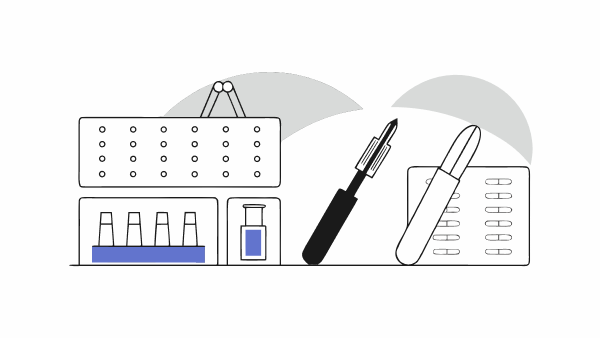Biomechanical validation of a surgical implant is a critical step prior to commercialization. Not only patient safety depends on it, but also the regulatory feasibility and market success of the product.
However, choosing the right laboratory to perform testing is not always straightforward. Not all centers have sufficient accreditations, technology or experience to meet the requirements of the European Medical Device Regulation (MDR 2017/745).
In this article we explain the technical and regulatory criteria you should consider when selecting a reliable testing laboratory, with examples applied to the field of orthopedic and dental implants.
Why the choice of laboratory makes a difference
The testing stage is the point at which design decisions, materials and manufacturing processes are put to the test. A competent laboratory not only runs tests, but interprets the results and provides biomechanical knowledge to improve the product.
A suitable laboratory should:
- Ensure traceability, repeatability and technical validity of each test.
- To have accredited personnel and calibrated equipment.
- Apply international standards (ISO, ASTM, UNE) in their procedures.
- Issue reports recognized by notified bodies and valid for CE marking.
The difference between an accredited and non-accredited laboratory can mean months of delay or even retesting if the results are not accepted by the regulator.
1. Verify ISO/IEC 17025 accreditation.
The first criterion to review is whether the laboratory has ISO/IEC 17025 accreditation, which guarantees its technical competence and the validity of its results.
This accreditation, granted by ENAC in Spain, certifies that the laboratory:
- Uses validated and audited test methods.
- Performs periodic calibrations of its instruments.
- It has technically qualified personnel.
- Participates in benchmarking programs to verify the quality of its results.
Choosing an accredited laboratory ensures that the data obtained will be recognized by European notified bodies and accepted for device certification under the MDR.
More information about ISO/IEC 17025 accredited laboratories: see article ISO/IEC 17025 accreditation in medical devices.
2. Evaluate the experience in your type of implant.
Not all implants are tested in the same way. The loading conditions, materials and applicable standards vary depending on the device. A laboratory specialized in biomechanics must adapt its protocols to the type of implant. Among others we find:
| Type of implant | Applicable standards | Main tests |
|---|---|---|
| Dental implants | UNE-EN ISO 14801 | Flexure-compression fatigue test |
| Bone plates (osteosynthesis) | ISO 9585 / ASTM F382 | Four-point bending test |
| Hip prosthesis (femoral stems) | ISO 7206-4 / ASTM F384 | Dynamic fatigue and structural strength testing |
| Spinal Implants | ASTM F1717 / ISO 12189 | Torsion and axial load test |
A laboratory with proven expertise in these areas can anticipate design problems and offer recommendations that optimize implant durability and biomechanics.
At Med-Lab IBV, we are specialists in the biomechanical evaluation of surgical implants, both accredited and customized. Find out more in our implant testing laboratory.
3. Make sure the equipment is state-of-the-art.
The test equipment determines the accuracy of the results. It is essential that the laboratory has certified and up-to-date machines, such as:
- Universal testing machines with load and displacement control.
- Biaxial equipment to simulate combined loads.
- Cyclic fatigue simulators capable of replicating millions of cycles.
- Strain analysis systems to measure stresses in real time.
The calibration and traceability of this equipment must be documented, and the test procedures must reproduce the real physiological conditions of use of the implant.
4. Reviews technical interpretation and added value
Beyond the numerical data, a reference laboratory must provide technical interpretation and expert advice.
The best reports include:
- Comparisons with biomechanical databases.
- Failure analysis and redesign recommendations.
- Evaluation of implant performance under critical conditions.
- Expert opinion signed by a technical director or expert biomedical engineer.
This information not only facilitates certification, but can also reduce development times and optimize validation costs.

5. Considers compliance with MDR 2017/745.
The MDR establishes that manufacturers must demonstrate the safety and clinical performance of their implants through verifiable data. Laboratory tests are the basis for this technical evidence.
Selecting a laboratory with experience in testing under MDR 2017/745 ensures:
- Compliance with preclinical performance requirements.
- Valid data for the technical file of the product.
- Support in the documentation required for CE marking.
A laboratory that understands the regulatory implications of MDR is a strategic partner, not just a test provider.
6. Evaluates customer communication and support
In complex projects, communication between manufacturer and laboratory is key. Make sure the plant offers:
- Technical assistance during the definition of the test plan.
- Documentary traceability and access to interim reports.
- Commitment to delivery deadlines.
- Post-test support for regulatory clarifications or audits.
The laboratory must behave as a technological partner, capable of adapting to the specific needs of each manufacturer.
The laboratory is your strategic partner
Choosing a surgical implant testing laboratory is not an administrative decision, but an investment in safety, compliance and competitiveness.
An accredited laboratory, with expertise in applied biomechanics and aligned with the MDR, can make the difference between an approved product and one that falls behind in its certification.
At Med-Lab IBV, we combine ISO/IEC 17025 accreditation, state-of-the-art technology and a technical team with decades of experience in the testing and validation of surgical implants.
Contact Med-Lab IBV to define the most suitable testing plan for your implants and ensure their compliance with the requirements of MDR 2017/745.




